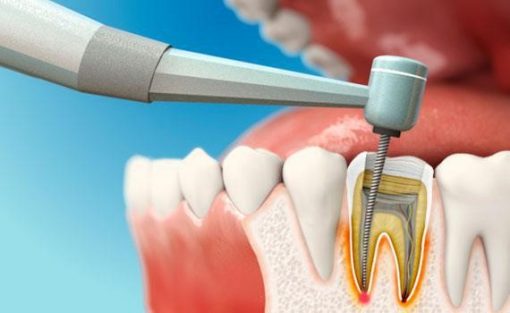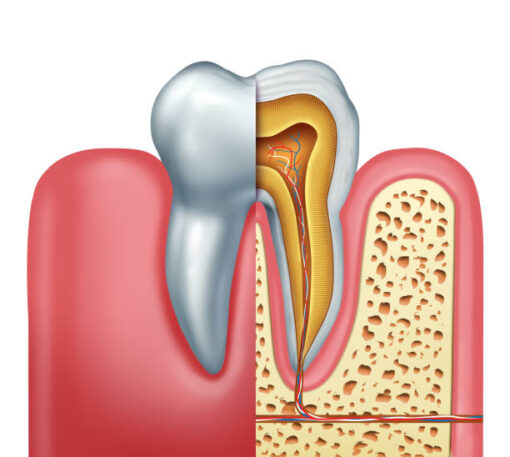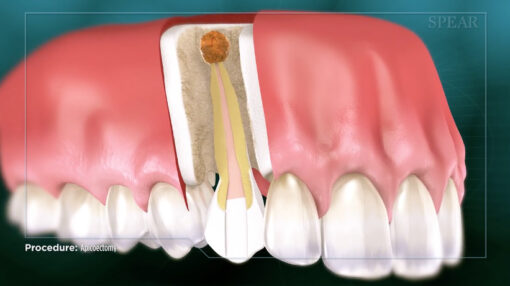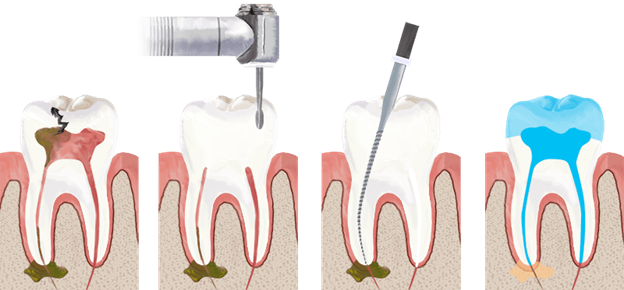There’s no denying that getting a root canal treatment is one of the most painful dental procedures. Even with local anaesthesia, it’s still quite uncomfortable, as the dentist needs to access your dental pulp to clean the chamber and remove infected or decaying tissue. What’s more concerning is that pain after root canal therapy can be a sign of infection or other post-operative issues. If you experience pain after the treatment, this article will help you understand what might be causing it and how you can ease it. Keep reading for more information about post-root canal surgery after pain and its possible causes.
Constipation after Root Canal Therapy
Constipation is a common problem after root canal surgery, as the anaesthesia and painkillers used during the procedure may cause decreased bowel activity. So if you experience constipation after treatment, try to stay hydrated and drink lots of water to prevent dehydration. You can also try gentle laxatives, such as psyllium husk or magnesium citrate, which are known to have minimal side effects.
An examination by an endodontist may be necessary to diagnose these conditions.
Another cause of constipation after root canal surgery is the decreased production of saliva, as the salivary glands are also affected by the anaesthesia. Try chewing sugar-free gum or sipping water throughout the day to stimulate saliva production and prevent dry mouth and constipation.
Local infection after Root Canal Therapy
If you experience a sudden onset of pain after the treatment, it may be a sign of developing an infection in your root canal system. The pain can be felt in the root-canaled tooth, the surrounding gums, or the jaw. An infection after root canal surgery is rare, but it does happen, especially if you have a weakened immune system. The infection could also spread to your bloodstream, which could be life-threatening if not treated right away.
Common causes for root canal infections



To avoid this complication, follow your dentist’s instructions carefully and take antibiotics as prescribed. If you suspect that you have an infection, don’t ignore the symptoms and go see your dentist as soon as possible. If the infection is left untreated, it could spread to your jaw and surrounding tissues and cause serious complications. Your dentist may recommend a root canal retreatment or even tooth extraction if the infection is severe.
Abnormal force on the Root Canal Therapy
If you experience pain in the root canal-treated tooth, it could be due to an abnormal force on it. The most common cause is clenching or grinding your teeth. This can cause wear and tear of the tooth structure as well as damage to the soft tissues and gums surrounding it. If you grind your teeth regularly, you can wear down the enamel and dentin and expose the root canal system. You should try to wear a mouth guard to protect the teeth and gums and prevent the root canal tooth from being damaged.
Excessive bleeding after Root Canal Therapy
Excessive bleeding after surgery is another sign of an infection, but it can also indicate a problem with the blood flow in the tooth. If your gums become swollen and the wound bleeds more than usual, it could be a sign of a blood clot. If the swelling is severe, you may need to see a dentist to treat the problem and prevent it from getting worse. In some cases, the blood flow in the tooth may be blocked, causing the root canal system to be starved for blood. This can cause pain in the tooth and the surrounding tissues. If you experience this type of pain, see a dentist for treatment as soon as possible to prevent further complications.
Tooth Pain after Root Canal Therapy: Inflammation
The most common cause of post-root canal tooth pain is inflammation, which can be caused by the procedure itself or because the infection caused the tooth ligament to become swollen. In these cases, the swelling will subside in the days and weeks following the root canal, and the pain will resolve on its own.

Teeth Pain after Root Canal Treatment: Infection
A root canal procedure is often performed to remove the infected pulp from inside the tooth, so it’s possible that there’s still some bacteria present after the procedure, and this can lead to infected tissue and more pain. Like with swelling, the problem should resolve itself once your immune system attacks and kills the bacteria, but if the problem persists, your doctor or dentist may recommend antibiotics.
Pain After Root Canal Therapy: Fillings that are too large
After your dentist removes the pulp from inside your tooth, the empty space is filled with a rubber-like material. If too much filling material is used, however, it will cause the tooth to sit higher, and this will cause pain any time you bite down. Although this problem won’t resolve on its own, your dentist can fix the issue easily by adjusting the filling.
Severe Pain After Canal Therapy: Incomplete Root Canal
Some teeth, especially the molars, can have multiple canals. And it’s possible for a dentist to miss one or more of these during the procedure. In these instances, the initial cause of the pain never gets fixed. So you’ll still experience pain even after the root canal. Similarly, if the dentist happens to miss any of the damaged nerves inside the tooth that need to be removed. You may still experience pain when that tooth comes in contact with heat, cold, or something acidic.
Discomfort due to Irritation after root canal therapy
The surrounding tissues, particularly the gums, may be irritated from the root canal surgery. To prevent this, your dentist will advise you to avoid certain foods before and after the treatment. Sticking to a soft diet can help soothe the gums and prevent irritation. You can also apply a cold compress to reduce swelling and ease the discomfort. The gums may also be swollen after surgery due to a bacterial infection or the use of anaesthetic. Try taking antibiotics as prescribed for the infection to prevent it from spreading or getting worse. You can also apply an ice pack or soak your gums in saltwater to treat the swelling.
Conclusion
Many people are afraid of the therapy because they think it’s a really painful procedure. The good news is that modern dentistry has made the procedure much safer and more comfortable than it once was. If you’re getting treatment, don’t worry — it’s not that bad! Now that you know the causes of pain after the therapy, you can take steps to prevent them. If you follow your dentist’s instructions and take good care of the root canal tooth, you can prevent future pain after root canal surgery.





